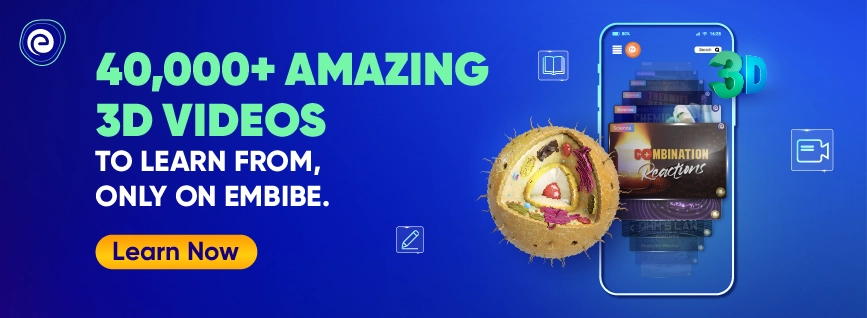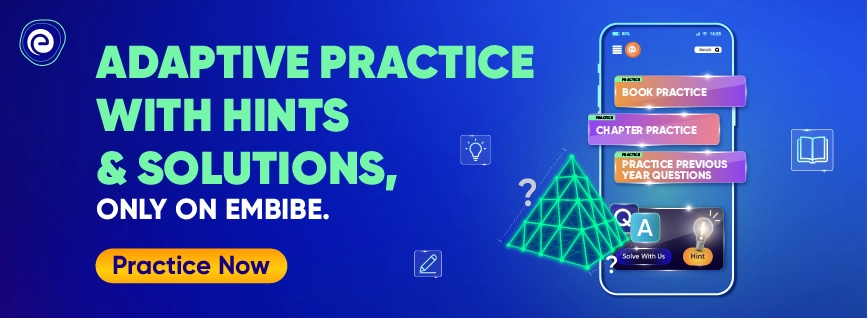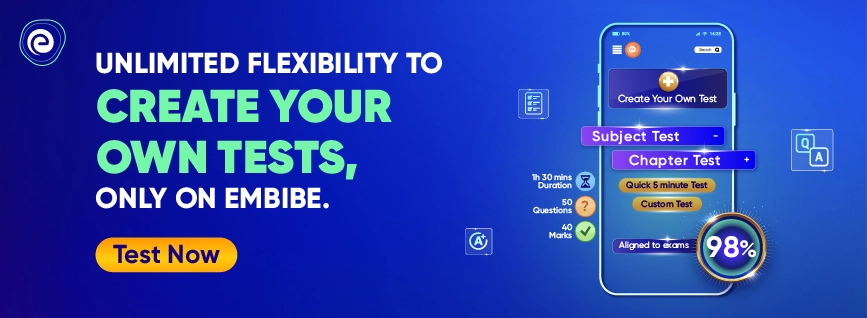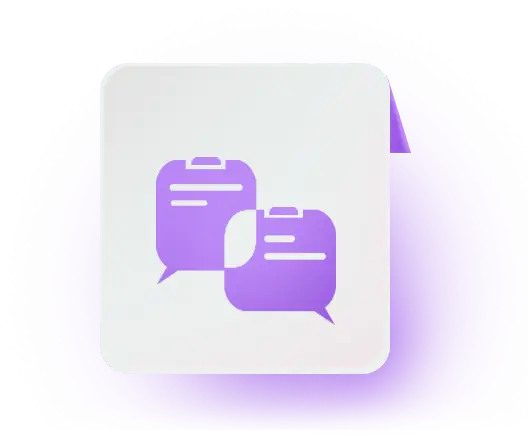- Written by Rahul Khatake
- Last Modified on 26-11-2024
The Central Board of Secondary Education (CBSE) conducts the Class 8 examinations every year. CBSE prescribes NCERT textbooks and solutions for Class 8 students. All the NCERT books are according to the latest CBSE guidelines. Therefore, schools and students refer to NCERT Class 8 books for teaching and learning. The question papers are prepared according to the latest syllabus and exam pattern prescribed by CBSE.
Class 8 is a focus-oriented stage that is important for students to choose the career path they want to follow. While they have learnt most of the basics in lower classes, the 8th standard is where they start understanding the comprehensiveness of many topics. Therefore, students should focus on learning those topics as they will be more complex in the higher classes. Read on to get more details on CBSE Class 8.
CBSE Class 8 Exam Summary 2025
As per the guidelines of the Central Board of Secondary Education (CBSE), performance and growth of the students are evaluated by Continuous and Comprehensive Evaluation (CCE) through Formative Assessments (FA) and Summative Assessments (SA). Evaluation is based on three core subjects, i.e., Mathematics, Science, Social science and two languages.
- Formative Assessment (FA): Formative assessment not only includes the performance in pen-paper test but also considers the performance in quizzes, interviews, visual testing, assignments, practicals, oral testing, projects, puzzles, group activities, etc.
- Summative Assessment (SA): This assessment checks on how much a student has learned after completing a particular chapter or course. It is conducted as decided by the school authorities and adheres to the guidelines of CBSE. Under this assessment process, students will be examined based on the syllabus and curriculum of CBSE Class 8.
CBSE believes that co-scholastic skills are as important as scholastic skills. Hence, these skills will also be assessed for the students. Co-scholastic skills include Health and Physical Education, Attitude and Values, Aesthetic Skills, Participation and achievement in Literary and Creative Skills.
CBSE Official Website Link
https://www.cbse.gov.in
CBSE Class 8 Exam Pattern 2025
The exam pattern for CBSE Class 8 varies with each school. Students are advised to reach out to their teachers to know the exam pattern for all the subjects.
CBSE Class 8 Exam Syllabus 2025
The first thing students should do at the beginning of the academic session is to know their syllabus. It will help them in creating a proper study routine, to cover the whole syllabus thoroughly. Students can also allocate time to the subjects in which they are weak. Students of CBSE Class 8 can start their final exam preparation by referring to the detailed exam syllabus structure. Here is the CBSE Class 8 syllabus of five subjects, i.e. Mathematics, Science, English, Social Science, and Hindi.
CBSE Class 8 Science Syllabus
Science is one of the most important subjects. Students need to write detailed answers to score maximum marks in the subject. As per the NCERT textbook of Science for Class 8, the different chapters included in the Class 8 Science are tabulated below. Students can refer to the table below for further details.
| Chapter Number |
Chapter Name |
| Chapter 1 |
Crop Production and Management |
| Chapter 2 |
Microorganisms: Friend and Foe |
| Chapter 3 |
Synthetic Fibres and Plastics |
| Chapter 4 |
Materials: Metals and Non-Metals |
| Chapter 5 |
Coal and Petroleum |
| Chapter 6 |
Combustion and Flame |
| Chapter 7 |
Conservation of Plants and Animals |
| Chapter 8 |
Cell – Structure and Functions |
| Chapter 9 |
Reproduction in Animals |
| Chapter 10 |
Reaching the Age of Adolescence |
| Chapter 11 |
Force and Pressure |
| Chapter 12 |
Friction |
| Chapter 13 |
Sound |
| Chapter 14 |
Chemical Effects of Electric Current |
| Chapter 15 |
Some Natural Phenomena |
| Chapter 16 |
Light |
| Chapter 17 |
Stars and The Solar System |
| Chapter 18 |
Pollution of Air and Water |
CBSE Class 8 Mathematics Syllabus
Students can score full marks in Maths. For this, they should understand the topics and solve sample problems. The CBSE Class 8 Maths syllabus will help students create the base for more complex topics in the higher classes. The chapters included in the syllabus for CBSE 8th Maths are tabulated below:
| Chapter Number |
Chapter Name |
| Chapter 1 |
Rational Numbers |
| Chapter 2 |
Linear Equations in One Variable |
| Chapter 3 |
Understanding Quadrilaterals |
| Chapter 4 |
Practical Geometry |
| Chapter 5 |
Data Handling |
| Chapter 6 |
Square and Square Roots |
| Chapter 7 |
Cube and Cube Roots |
| Chapter 8 |
Comparing Quantities |
| Chapter 9 |
Algebraic Expressions and Identities |
| Chapter 10 |
Visualising Solid Shapes |
| Chapter 11 |
Mensuration |
| Chapter 12 |
Exponents and Powers |
| Chapter 13 |
Direct and Inverse Proportions |
| Chapter 14 |
Factorisation |
| Chapter 15 |
Introduction to Graphs |
| Chapter 16 |
Playing with Numbers |
CBSE Class 8 Social Science Syllabus
In CBSE Class 8, Social Science is divided into History, Geography, and Political Science. Students must study all the books as questions in the final exam will be asked of each of them. Students can check the CBSE Class 8 Social Science Syllabus below and based on that plan their further study routine.
CBSE Class 8 History Syllabus
In CBSE Class 8 History, students will learn about how trading was done in the past in different periods, Indian nationaldom movements, etc. Below table shows the CBSE Class 8 History syllabus:
| Chapter Number |
Name of the Chapter |
| Chapter 1 |
How, When and Where |
| Chapter 2 |
From Trade to Territory |
| Chapter 3 |
Ruling the Countryside |
| Chapter 4 |
Tribals, Dikus and the Vision of the Golden Age |
| Chapter 5 |
When People Rebel 1857 and After |
| Chapter 6 |
Weavers, Iron Smelters and Factory Owners |
| Chapter 7 |
Civilising the “Native”, Educating the Nation |
| Chapter 8 |
Women, Caste, and Reform |
| Chapter 9 |
The Making of the National Movement 1870s-1945 |
| Chapter 10 |
India after Independence |
CBSE Class 8 Geography Syllabus
In CBSE Class 8 Geography, students will be introduced to types of vegetation, resources, industries, etc. The CBSE Class 8 Geography syllabus is as follows:
| Chapter Number |
Chapter Name |
| Chapter 1 |
Resources |
| Chapter 2 |
Land, Soil, Water, Natural Vegetation and Wildlife Resources |
| Chapter 3 |
Mineral and Power Resources |
| Chapter 4 |
Agriculture |
| Chapter 5 |
Industries |
| Chapter 6 |
Human Resources |
CBSE Class 8 Political Science Syllabus
CBSE Class 8 Political Science syllabus teaches students about how a government functions, what are constitution and secularism, etc. The CBSE Class 8 Political Science syllabus is as follows:
| Chapter Number |
Chapter Name |
| Unit One: The Indian Constitution and Secularism |
| Chapter 1 |
The Indian Constitution |
| Chapter 2 |
Understanding Secularism |
| Unit Two: Parliament and the Making of Laws |
| Chapter 3 |
Why Do We Need a Parliament? |
| Chapter 4 |
Understanding Laws |
| Unit Three: The Judiciary |
| Chapter 5 |
Judiciary |
| Chapter 6 |
Understanding Our Criminal Justice System |
| Unit Four: Social Justice and the Marginalised |
| Chapter 7 |
Understanding Marginalism |
| Chapter 8 |
Confronting Marginalism |
| Unit Five: Economic Presence of the Government |
| Chapter 9 |
Public Facilities |
| Chapter 10 |
Law and Social Justice |
CBSE Class 8 English Syllabus
The CBSE Class 8 English syllabus aims to enhance students’ command over the language. It also introduces them to English literature. The syllabus of the CBSE 8th Class English Textbook is divided into two parts:
- English Literature
- English Grammar and Composition
The CBSE Class 8 English Literature section is based on a main textbook of English and a Supplementary Reader in English. Let us see what is included in each of the two books.
CBSE Class 8 English (Honeydew Textbook) Syllabus
The CBSE Class 8 English Honeydew textbook syllabus is as follows:
| Chapter Number |
Chapter Name |
| Chapter 1 |
The Best Christmas Present in the World |
| Poem |
The Ant and the Cricket |
| Chapter 2 |
The Tsunami |
| Poem |
Geography Lesson |
| Chapter 3 |
Glimpses of the Past |
| Poem |
Macavity: The Mystery Cat |
| Chapter 4 |
Bepin Choudhury’s Lapse of Memory |
| Poem |
The Last Bargain |
| Chapter 5 |
The Summit Within |
| Poem |
The School Boy |
| Chapter 6 |
This is Jody’s Fawn |
| Poem |
The Duck and the Kangaroos |
| Chapter 7 |
A Visit to Cambridge |
| Poem |
When I set out for Lyonnesse |
| Chapter 8 |
A Short Monsoon Diary |
| Poem |
On the Grasshopper and Cricket |
| Chapter 9 |
The Great Stone Face – I |
| Chapter 10 |
The Great Stone Face – II |
CBSE Class 8 English Supplementary Reader (It So Happened) Syllabus
The CBSE Class 8 syllabus for English It So Happened (Supplementary Reader) is as follows:
| Chapter Number |
Chapter Name |
| Chapter 1 |
How the Camel got his Hump |
| Chapter 2 |
Children at work |
| Chapter 3 |
The Selfish Giant |
| Chapter 4 |
The Treasure Within |
| Chapter 5 |
Princess September |
| Chapter 6 |
The Fight |
| Chapter 7 |
The Open Window |
| Chapter 8 |
Jalebis |
| Chapter 9 |
The Comet – I |
| Chapter 10 |
The Comet – II |
| Chapter 11 |
Ancient Education System of India |
CBSE Class 8 English Grammar and Composition Syllabus
This section is also subdivided into two parts – English Grammar and English Composition (Writing). Both these sections are scoring sections, so students must know the syllabus thoroughly to score better marks.
CBSE Class 8 English Grammar Syllabus
Below we have provided the CBSE Class 8 English Grammar syllabus for reference:
| Unit Number |
Unit Name |
| a. |
Order of Words and Clauses |
| b. |
Direct and Indirect Speech |
| c. |
Active and Passive Voice |
| d. |
Tenses |
| e. |
Noun |
| f. |
Pronoun |
| g. |
Verb |
| h. |
Adverb |
| i. |
Prepositions |
| j. |
Conjunction |
| k. |
Phrases and Idioms |
| l. |
Vocabulary |
| m. |
Comprehension Reading |
CBSE Class 8 English Composition (Writing) Syllabus
This section tests the writing skills in English. The English Composition syllabus has the following topics:
| Unit Number |
Unit Name |
| a. |
Notice |
| b. |
Story |
| c. |
Formal and Informal Letters |
| d. |
Diary Entry |
| e. |
Essay |
CBSE Class 8 Hindi Syllabus
The syllabus for CBSE Class 8 Hindi can be broadly categorised into Hindi Literature and Hindi Grammar and Composition. The syllabus for CBSE Class 8 Hindi Literature is based on the following three books Durva, Vasant – Bhag 3, and Bharat Ki Khoj (Supplementary). The detailed book-wise syllabus for CBSE Class 8 Hindi is tabulated below:
CBSE Class 8 Hindi Literature (Vasant) Syllabus
Below is the syllabus for CBSE class 8 Hindi Literature (Vasant):
| Chapter Number |
Name of the Chapter |
| 1. |
ध्वनि (कविता) |
| 2. |
लाख की चूड़िया (कहानी) |
| 3. |
बस की यात्रा |
| 4. |
दीवानों की हस्ती (कविता) |
| 5. |
चिट्ठियों की अनूठी दुनिया (निबंध) |
| 6. |
भगवान के डाकियेडाकिए (कविता) |
| 7. |
क्या निराश हुआ जाए (निबंध) |
| 8. |
यह सब से कठिन समय नहीं (कविता) |
| 9. |
कबीर की साखियाँ |
| 10. |
कामचोर (कहानी) |
| 11. |
जब सिनेमा ने बोलना सीखा |
| 12. |
सुदामा चरित (कविता) |
| 13. |
जहाँ पहिया है |
| 14. |
अकबरी लोटा (कहानी) |
| 15. |
सूर के पद (कविता) |
| 16. |
पानी की कहानी (निबंध) |
| 17. |
बाज और साँप (कहानी) |
| 18. |
टोपी (कहानी) |
CBSE Class 8 Hindi Literature (Durva) Syllabus
The syllabus for CBSE Class 8 Hindi Literature (Durva) is as follows:
| Chapter Number |
Chapter Name |
| 1. |
गुड़िया |
| 2. |
दो गोरैया |
| 3. |
चिट्ठियों में यूरोप |
| 4. |
ओस |
| 5. |
नाटक में नाटक |
| 6. |
सागर यात्रा |
| 7. |
उठ किसान ओ |
| 8. |
सस्ते का चक्कर |
| 9. |
एक खिलाडी की कुछ यादें |
| 10. |
बस की सैर |
| 11. |
हिंदी ने जिनकी जिंदगी बदल दी |
| 12. |
आषाढ़ का पहला दिन |
| 13. |
अन्याय के खिलाफ |
| 14. |
बच्चो के प्रिय श्री केशव शंकर पिल्लई |
| 15. |
फर्श पर |
| 16. |
बड़ी अम्मा की बात |
| 17. |
वह सुबह कभी तो आएगी |
| 18. |
आओ पत्रिका निकालें |
| 19. |
आहवान |
CBSE Class 8 Hindi Literature (Bharat Ki Khoj) Syllabus
The CBSE Class 8 Hindi Literature (Bharat Ki Khoj) syllabus is given below:
| Chapter Number |
Chapter Name |
| 1. |
अहमदनगर का किला |
| 2. |
तलाश |
| 3. |
सिंधु घाटी सभ्यता |
| 4. |
युगों का दौर |
| 5. |
नयी समस्याएँ |
| 6. |
अंतिम दौर -एक |
| 7. |
अंतिम दौर -दो |
| 8. |
तनाव |
| 9. |
दो पृष्ठभूमियाँ – भारतीय और अंग्रेज़ी |
CBSE Class 8 Hindi (Grammar and Composition) Syllabus
The Syllabus for CBSE Class 8 Hindi composition includes:
- Essay (निबंध)
- Letter Writing (पत्र लेखन)
| Chapter Number |
Chapter Name |
| 1. |
पुनरुक्ति शब्द |
| 2. |
वाक्यनिर्माण |
| 3. |
संज्ञा |
| 4. |
विशेषण |
| 5. |
कारक |
| 6. |
अनेकार्थीशब्द |
| 7. |
विभक्ति |
| 8. |
प्रत्यय |
| 9. |
शब्द परिवार |
| 10. |
संधि |
| 11. |
समास |
| 12. |
द्वंद्व |
| 13. |
उपसर्ग |
| 14. |
अनेक शब्दों के लिए एक शब्द |
| 15. |
मुहावरे |
| 16. |
समानार्थी |
The supplemental book for Hindi is the NCERT Class 8 Hindi Sanshipt Budhcharit Textbook. This book is divided into five parts, each of which gives a brief overview of the life of ‘The Buddha’. Various key events in Gautam Buddha’s life are presented in this textbook in an engaging manner to capture students’ attention and help them learn from his life and teachings.
| Chapter Number |
Chapter Name |
| 1. |
आरंभिक जीवन |
| 2. |
अभिनिष्क्रमण |
| 3. |
ज्ञान प्राप्ति |
| 4. |
धर्मचक्र प्रवर्तन |
| 5. |
महापरिनिवार्ण |
Study Plan to Maximise Score in CBSE Class 8 Exam 2025
While students must have a strong conceptual base in their chapters, they need to know how to produce the knowledge in answers. Thus, they need to follow certain methods to make their study comprehensive and error-free. To help students organise their time is such a way that they cover the whole syllabus and do revision. Students can go through the study plan in order to obtain good marks in CBSE Class 8 exam 2025.
CBSE Class 8 Exam Preparation Tips
Once students start studying, they should also practice sample questions to check their understanding of the concepts. as they gain confidence in a topic/chapter or subject, they should take mock tests to better prepare for the final exam. Below we have provided CBSE Class 8 preparation tips for your reference:
- A detailed strategy and a plan for completing the syllabus are a must to secure good marks in any examination.
- Students must have a good understanding of their strengths and weaknesses and should plan the preparations accordingly.
- They should keep a positive attitude and start their preparation journey as early as possible.
- For chapters involving numerical and lots of calculations, try practising more and more problems.
- Following a well-disciplined timetable makes a day organised and manageable.
- Do not hesitate to clear doubts with the teachers. Embibe provides students with round-the-clock doubt-clearing support.
- Make sure to finish the complete syllabus before exams to avoid the last day’s exam anxiety.
Detailed Study Plan for CBSE Class 8
The subjects in CBSE Class 8 teach students a variety of concepts. To get maximum marks in each subject, students should know how to study each subject. Refer to the subject-wise CBSE Class 8 detailed study plan and put sincere efforts to ace each subject. Below is the detailed study plan for CBSE Class 8 :
- Science: The Physics and Chemistry chapters are concept-based, and questions from these fields will be either conceptual or numerical. Memorise all the relevant laws, formulae, equations, and diagrams on hand and practise problems related to the topics. To prepare for Biology, it is important to focus on neat and well-labelled diagrams. Instead of rote-learning the facts and concepts, draw flow diagrams on important topics and study the key points that explain them.
- English: Make reading a daily habit. Read at least two paragraphs from an English magazine to develop fluency in comprehension reading. Students must practice previous years’ papers to get an idea about the types of grammatical and composition questions.
- Social Science: To score good marks in History, students need to remember historical dates, events, important people, and the correct chronology of events. Most history answers would be incomplete without mentioning the events’ dates, cause and effect, people involved, etc. Create a flowchart of all events to memorise them well. For Geography, practise maps alongside the theory part. Give equal importance to map work. Once students practice well for maps, they can locate relevant places easily and score excellent marks.
- Mathematics: Write important formulas on a separate sheet and revise them as time allows. Solve all problems in the CBSE Class 8 textbook and understand the basic concepts. Questions are often asked directly from the books with only a few variations.
FAQs on CBSE Class 8 Exam 2025
Below are some frequently asked questions on CBSE Class 8:
Q: What are the subjects in CBSE Class 8?
Ans: CBSE Class 8 subjects include Maths, Science, Social Studies, English, and Hindi. There are other elective subjects like Sanskrit, Urdu, etc. as well.
Q: Which book is best for Science in CBSE Class 8?
Ans: Lakhmir Singh’s Science book is considered as the best book to prepare for CBSE class 8 science exam as they are aligned to the NCERT syllabus.
Q: How can I prepare for the Class 8 examinations?
Ans: An optimum way to prepare for the Class 8 examinations is to finish the chapters from the NCERT books. Once students have completed the entire syllabus, they can solve the subject-wise mock tests on Embibe. It will help them score well.
Q: Are there board exams in CBSE Class 8?
Ans: The Central Board of Secondary Education conducts board exams only for Classes 10 and 12. The schools conduct the exams as per CBSE guidelines for Class 8.
Q: Is there a platform where I can solve CBSE class 8 mock questions?
Ans: Yes, students can take Class 8 mock tests at Embibe. Moreover, they can also get an in-depth analysis of their performance.
List of Educational Institutions for CBSE Class 8
Several schools are affiliated with the CBSE board. There are around 21,271 CBSE-affiliated schools in India. The several CBSE school lists, either state or region-wise, can be found by clicking here.
Future Exams After CBSE Class 8 Exam 2025
Many other competitive exams are conducted nationally and internationally. These exams are one of the ways to bring out students’ interests, capacity, knowledge and potential. Some of the competitive exams in which Class 8 students can appear are
- International Science Olympiad (ISO)
- International Computer Olympiad (ICO)
- International Drawing Olympiad (IDO)
- Silverzone International Social Studies Olympiad (iSSO)
- International Maths Olympiad (IMO)
- English International Olympiad (EIO)
- National Essay Olympiad (NESO)
- General Knowledge International Olympiad (GKIO)
Details of the exams that Class 8 students can appear for:
- National Talent Search Examination (NTSE): Students are assessed based on their understanding and knowledge of Science, Maths, Social Science, Mental Ability and General Knowledge. Students who qualify are awarded a scholarship for the next academic year and cash prizes.
- National Level Science Talent Search Exam (NLSTSE): The questions asked in the exam are from Physics, Maths, Biology, Chemistry and other General Awareness questions.
- Indian National Olympiad (INO): Students are evaluated based on their knowledge and understanding of Physics, Chemistry, Biology, Astronomy and Junior Science. The exam comprises a five-stage procedure. The first stage is a written exam conducted by NSE (National Standard Examination).
- GeoGenius: This exam aims to create interest in geography. In this exam, students are asked to mark the various locations of India on a blank map.
- National Interactive Maths Olympiad (NIMO): This exam assesses the students’ mental ability and mathematical skills. It also aims to reduce the fear of mathematics amongst the students.















































